The Creative School joins the City of Toronto at Collision and Esports Travel Summit
The Creative School was invited by the City of Toronto (external link, opens in new window) and Destination Toronto (external link, opens in new window) to participate in two renowned tech conferences that emphasize Toronto’s place as a leading destination for top talent and innovation in the thriving industry of video games and esports.
Collision (external link, opens in new window) brings together media, founders, investors and creators to network, learn and discuss emerging trends in technology. The Toronto Pavillion featured many of Toronto’s top business minds, tech ecosystem partners, City of Toronto staff and elected officials including representatives from The Creative School as they explored the pathways to how together, Toronto’s tech sector enables a more resilient, equitable city.
"Toronto has a reputation as a global innovation and creative hotspot. We invited The Creative School at Toronto Metropolitan University because we knew they exemplify these qualities through the high quality work developed through their programs. Our focus was on bringing in engaging and interactive works that would start conversations and create memorable experiences at the booth. Their projects succeeded in both of these areas and were a valuable part of presenting Toronto to the world." Anthea Foyer, Interactive Digital Media Office, City of Toronto
The Creative School invited attendees to sit back in one of four VIPod Chairs (external link, opens in new window) , an immersive gaming chair and home theatre at the same time, and play Mario Kart for the Nintendo Wii. This was complemented by an interactive installation that displayed RTA Media alumni Jason Leaver’s debut video game, Trash Panda (external link, opens in new window) , as well as showcased Toronto Metropolitan University’s dedicated video games and esports research lab, The Conduit (opens in new window) .
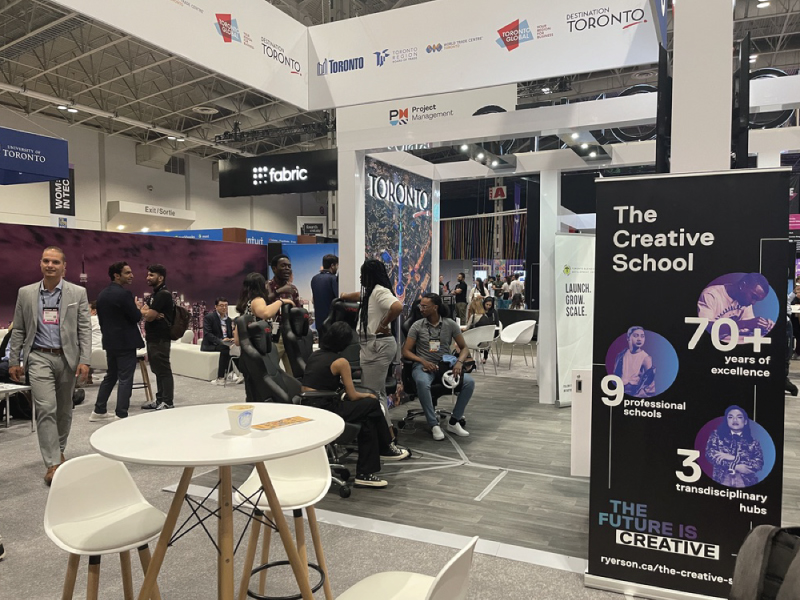
The Creative School at The Toronto Pavillion at Collision Conference 2022
In a panel moderated by Deputy Mayor Michael Thompson, RTA Media Assistant Professor and The Conduit’s Director of Research, Dr. Kristopher Alexander (opens in new window) was brought on to talk about Toronto’s powerful competitive edge, which includes its diverse population and innovative ecosystem.
Geoff Lachapelle, The Conduit’s Operational Lead, was at the Esports Travel Summit (external link, opens in new window) to represent the city’s commitment to attracting global esports players and events. This effort aligns with the growing esports industry in Toronto, with a new esports, entertainment facility (external link, opens in new window) slated to break ground early next year, and a rise in international competitions happening across the city.
Video games are an entertainment medium and one that has become bigger than film and music combined. The team of researchers are confident in the future of video games, esports and virtual production. Lachapelle says, “What we want is for the kids to have that conversion from what they are doing to a marketable, employable skill connected to their passion.”
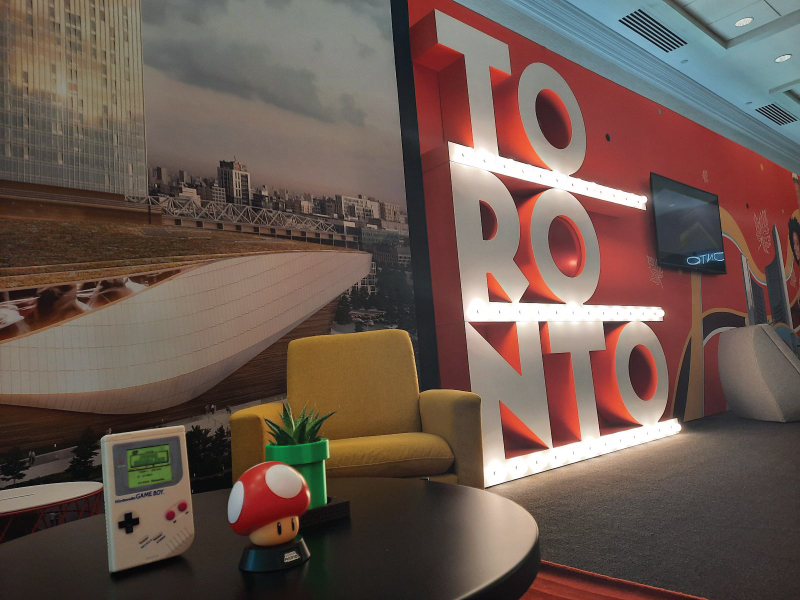
The Creative School was invited to the Collision conference by the City of Toronto
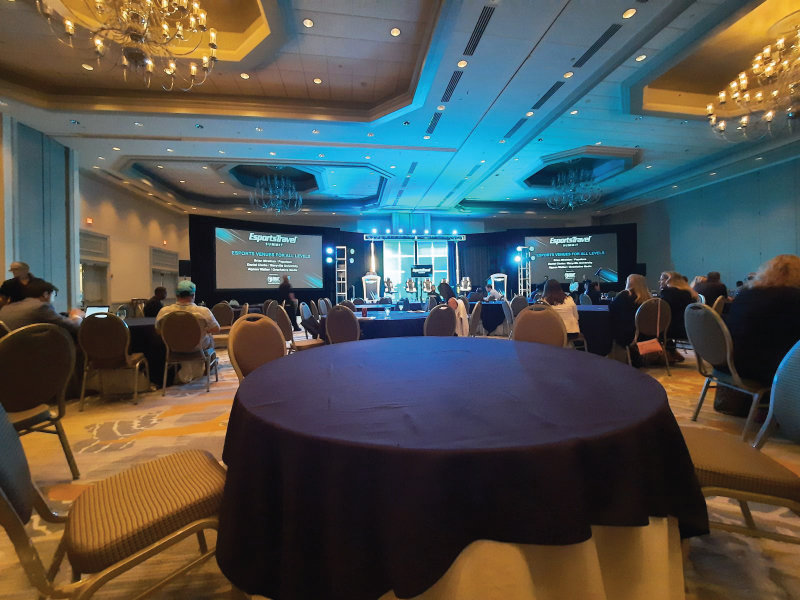
The City of Toronto and The Creative School’s The Conduit at the Esports Travel Summit in Daytona
The technology is limitless
As Deputy Mayor Thompson pointed out during the panel at Collision, “Tech is revolutionizing content and revolutionizing our world…it creates this equality of opportunity and the ability to then create opportunities [that] people can use - and monetize them.”
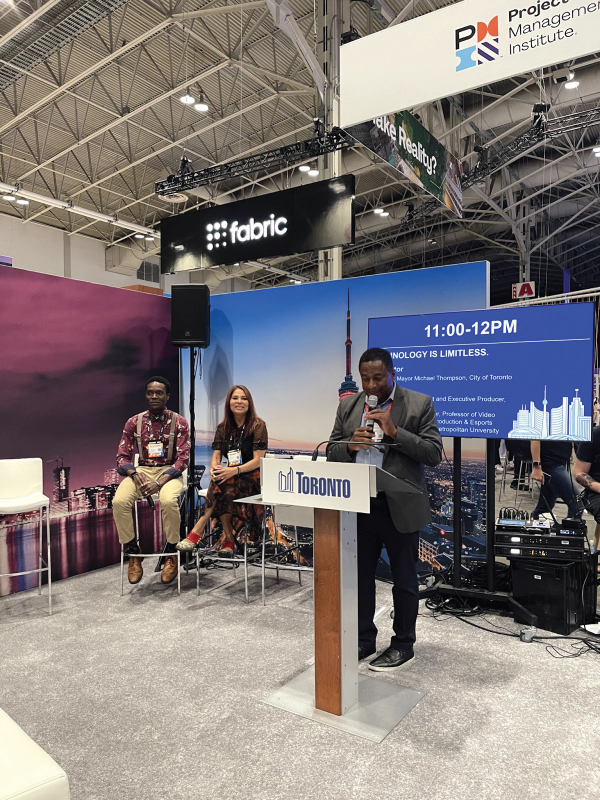
Deputy Mayor Michael Thompson leads the panel at Collision with Dr. Kristopher Alexander and Neishaw Ali, President of Spin VFX
Dr. Alexander and Lachapelle prioritize connecting students and educators to the massive array of technical and artistic specialists that make games come to life, and help students find careers in the field.
“In the videogame sphere, the engines that we teach you are the way to imbue you with the power to tell your own stories,” Dr. Alexander says.
In the world of esports, OverActive Media, (external link, opens in new window) a Toronto-based company that owns two Toronto esports franchises, is in the process of building a 7,200-seat entertainment facility in the city. The venue is expected to cost $500 million and is a testament to the massive growth potential in this space.
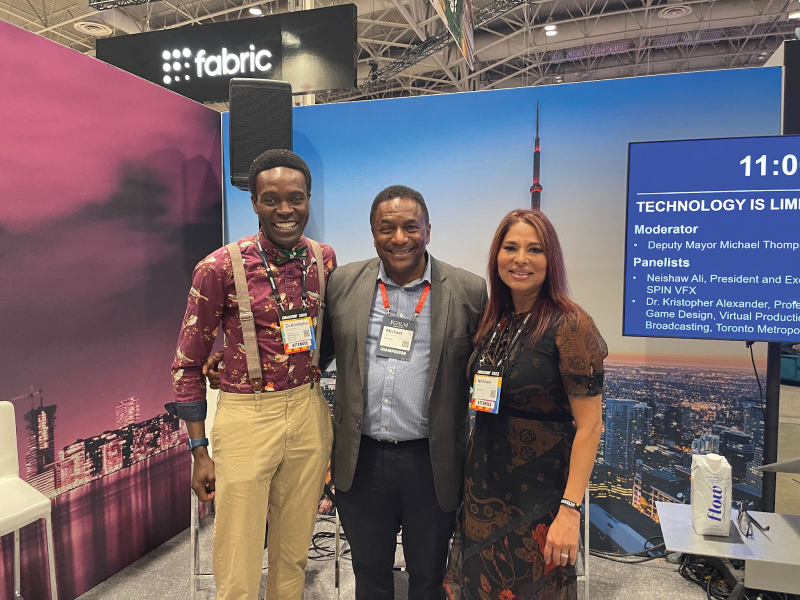
Left to right: Dr. Kristopher Alexander, Deputy Mayor Michael Thompson and Neishaw Ali
Virtual production represents immense opportunity
“The skills surrounding virtual production and the state of the media market, for the last two years have gone up 609%. The demand is there! Find your superpower in the context of this space and you will be fine,” Dr. Alexander emphasized during the Collision panel discussion. “Any proficient coder in C++ who can write their own engine has a 100% chance for job acquisition.”
Both Dr. Alexander and Lachapelle are encouraging the next generation of creators to push the industry forward. Through teaching video game design, esports broadcasting and virtual production, they help students harness their skills, find partners, connect to industry and land jobs.
Toronto is poised to become a global leader in esports
“We look towards manifestable, practical uses for this technology that are coming in the next two, three or four years…virtual aviators have strong, practical current uses. When it comes to creating virtual environments and when it comes to creating video games," says Lachapelle. He points out that as the technology becomes more robust, the more immersive the environments and characters become, taking things to the next level.
Lachapelle says that their Conduit Program, as the name suggests, can funnel students directly into jobs in the industry. Their ability to rally the enthusiasm, expertise and respect of industry experts to teach students and ultimately build connections makes the students’ transition to professional life more seamless.
“What we are trying to do in this field is connect students and educators to the massive array of technical and artistic specialists that make games come to life, and help students find careers,” says Lachapelle. “Video games rely on visual artists, composers, voice actors, motion capture technicians, programmers, network engineers, level designers, story writers, and hundreds of specialized technical and artistic jobs to be created.”
The Creative School allows them unique freedom and flexibility, creating an ecosystem where students have direct access to video game professionals, and immersing them in the technology and passionate educators.
One or two big technological leaps away
The metaverse has become a major part of the pop culture conversation, the term including a broad range of virtual reality, augmented reality and other XR technologies. The pair are looking towards the future, how these associated technologies will shape virtual media production, create stunning and immersive digital cinematics in film or video games, and design compelling and astonishing virtual reality experiences.
Lachapelle points out that this excitement for the metaverse is connected to the fact that for the first time, we can see where the technology is heading, it is attainable and the industry is getting there, just one or two big technological leaps away.
“For the first time, you don't have to be Steve Wosniack to understand what’s happening inside of that game environment, you can actually engage with it…and that is really driving the excitement and energy about the metaverse,” Lachapelle said. “We can see where the next step is going. The whole world will be able to get inside of a game, in a way that goes beyond just the headset rig and a pair of headphones.”
Toronto is a growing leader in this space, and it is telling with The Creative School and The Conduit invited to participate in some of the biggest conferences that unite emerging technologies with industry leaders, businesses and new opportunities. 
About The Creative School at Toronto Metropolitan University
The Creative School is a dynamic faculty at Toronto Metropolitan University making a difference in new, unexplored ways. Comprised of Canada’s top professional schools and transdisciplinary hubs in media, communication, design and cultural industries, The Creative School offers students an unparalleled global experience in the heart of downtown Toronto.